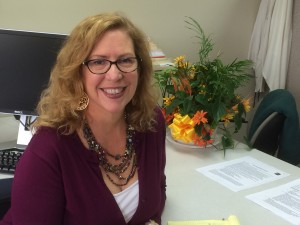Impact of New Refugee Vetting Procedures
Like many supporters of refugees in our community, we at St. Vincent Catholic Charities were anxiously waiting for October 24, 2017 when the travel ban and 120-day delay for refugees would end. That day, new refugee vetting procedures were announced that present new set of obstacles for refugees.
The main challenges of these new decrees for refugee vetting in our community are:
– Eleven nationalities and stateless Palestinians will not be approved for travel for a 90-day period in order to increase the review of security processes. The countries impacted by the additional 90-day suspension and added screening include: Egypt, Iran, Iraq, Libya, Mali, North Korea, Somalia, Sudan, South Sudan, Syria, Yemen, and stateless Palestinians. This includes the Iraqi refugees that have assisted US military efforts.
– There will be exceptions whereby individuals from these eleven countries will be resettled if it is deemed that it will “fulfill critical foreign policy interests.” Department of Homeland Security will only interview individuals from these countries on a “discretionary basis.” It remains to be determined how many refugees will benefit from this policy.
– All refugees in the resettlement process who have not yet been approved by the Department of Homeland Security (DHS) or had travel booked (but who have already proven a well-founded fear of persecution to the United Nations and no other durable solution) will be subject to new application processes and information collection. All refugees who are not currently DHS approved will have to provide a phone number and email address for all relatives on their family tree (parents, siblings, spouse, children, spouse’s parents and any divorces), rather than the current process of requiring this information for relatives in the United States. The current process allows cities or countries to be listed, while the new process would require specific addresses.
– All refugees will have to provide information going back ten years (instead of the current five years) for the places where they have lived for more than 30 days.
– Family Reunification cases (Visa 92 and Visa 93) for spouses and children will be on hold indefinitely for increased reviews. Although a few have had travel booked, there has been no confirmation of the framework for which cases are being approved. Many endangered families will choose to allow one parent (usually the father) to be resettled first, to make sure everything is safe and to become established. Then they send for the rest of the family. With this new edict, these families will continue to be separated and vulnerable women and children will remain at risk overseas.
All refugees includes men, women and children who may be living in insecure environments, recovering from torture, rape and abuse, malnutrition and trauma.
In the past 5 years, STVCC has resettled significant numbers of refugees from some of the targeted eleven countries, including:
– Somalia: 611 individuals (20% of total refugees resettled by STVCC)
– Iraq: 554 individuals (18%)
– Sudan: 165 individuals (6%)
– Syria: 75 individuals (3%)
– Iran: 20 individuals (1%)
People from these countries have been welcomed by the Greater Lansing community. They have become part of who we are and what we stand for. Refugee resettlement supports our schools and our local businesses. Many local employers depend on refugee labor to maintain their production. And refugees contribute to our tax base. In fact, a recent study from Detroit shows that refugees make very significant positive contributions to our local economy.
Lansing is a very welcoming community and we have a long history of refugee resettlement. Refugees help to make Lansing and the United States, the rich, diverse, beacon of hope that we love so much. Most Americans do not know how close this program is to being completely dismantled.
The numbers keep climbing. Fiscal Year 2017’s Presidential Determination of 110,000 new refugee arrivals, set by President Obama, was reduced to 50,000 (about 53,716 arrived). President Trump set the cap at 45,000 for FY 2018, the lowest ever. Now, these 45,000 are also at risk. That means that over 100,000 people who could have been saved, who could have enriched our lives, will continue to languish in hopelessness, their contributions and talents wasted.
We hope the community joins us in helping to educate others and continuing to support this life-saving endeavor.
The official documents from the federal government can be found here:
– Department of Homeland Security Statement
– Executive Order on Resuming the USRAP with Enhanced Vetting Capabilities
Please consult our website for more information on refugee resettlement in Lansing and contact us if you would like to set up an educational session for any group or organization that may be interested.
Judi Harris
St. Vincent Catholic Charities
Director, Refugee Services

ABOUT JUDI HARRIS
Judi Harris brings 25 years of professional experience managing international health and development programs, including time having worked in Senegal, Cameroon, Macedonia, Cambodia, and Haiti as part of the Peace Corps of the United States, Partners for Development, and the American Red Cross. Harris also has worked for the United States Conference for Catholic Bishops (USCCB), the leading organization for refugee resettlement in the country. In Harris’ current position as Refugee Resettlement Director at St. Vincent Catholic Charities, she has managed all activities for the resettlement of newly arriving refugees for the only resettlement program for adult individuals and families in the Lansing area for almost nine years.
